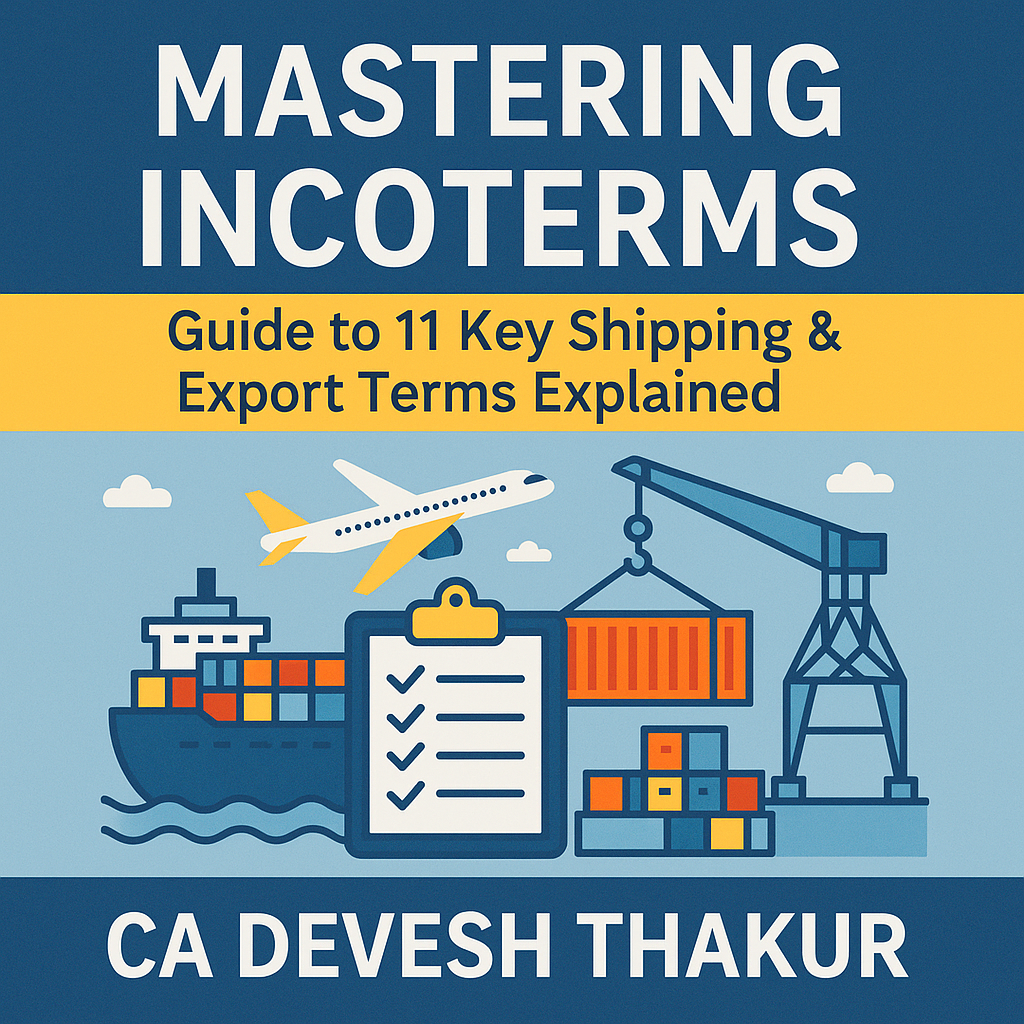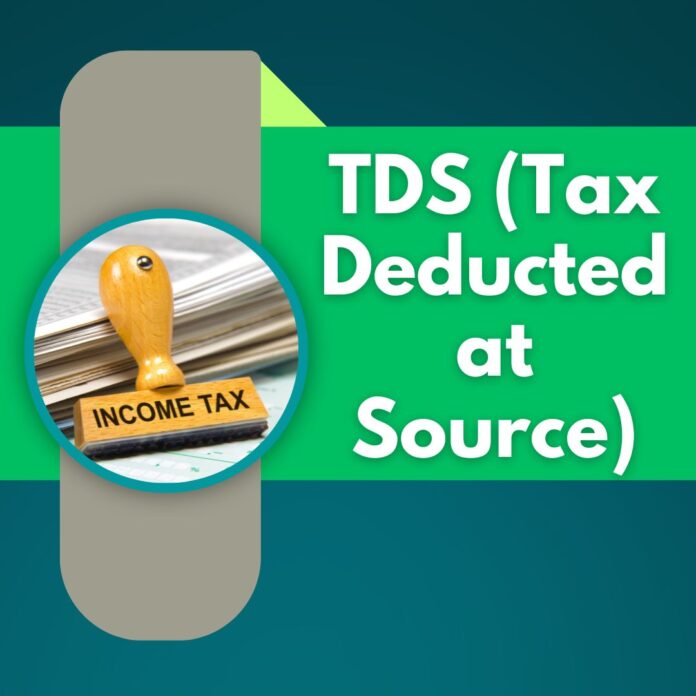1. EXW – Ex Works
Meaning:
Seller apne godown, factory ya warehouse par goods rakh deta hai – buyer ko wahi se saman uthana hota hai.
✅ Seller ki zimmedari bas saman ready karne tak hai.
❌ Seller loading, transport, export clearance kuch bhi nahi karega.
Example:
A Delhi-based manufacturer tells the buyer to pick up goods from their factory. Buyer arranges truck, loading, and export formalities.
Importance:
- Buyer ke liye maximum responsibility.
- Useful when buyer has better logistics control or operates from seller’s country.
Related Terms:
- Opposite of DDP (where seller handles everything).
2. FCA – Free Carrier
Meaning:
Seller buyer ke bataye gaye carrier (transport company) ko goods deliver karta hai – ya apni factory par ya kisi other agreed location par.
✅ Seller loading aur export clearance karta hai.
❌ Risk transfer ho jata hai jahan goods carrier ko diye jaate hain.
Example:
Seller delivers goods to the buyer’s freight forwarder at Delhi airport and clears for export.
Importance:
- Widely used in container shipments.
- Safer than EXW for buyers because export clearance is seller’s responsibility.
Related Terms:
- Similar to FOB but for non-sea modes too.
Meaning:
Seller goods ko apne appointed carrier ko handover karta hai, aur destination tak ka freight khud pay karta hai.
❌ Risk buyer ka ho jaata hai jab goods carrier ko diye jaate hain.
Example:
Seller in Mumbai pays for air freight to ship goods to New York but risk passes as soon as the goods are handed to the airline.
Importance:
- Seller pays freight, buyer takes risk during transit.
- Useful when seller has better freight terms.
Related Terms:
- Add insurance and it becomes CIP.
4. CIP – Carriage and Insurance Paid To
Meaning:
CPT jaise hi hai, lekin seller destination tak insurance ka basic coverage bhi leta hai.
✅ Freight + Insurance by seller
❌ Risk still transfers at handover to carrier.
Example:
Same as CPT, but seller also gets minimum insurance (Clause C) for the value of goods.
Importance:
- Buyer gets some protection against loss/damage.
- For better insurance, buyer should arrange extra.
Related Terms:
- Think of it as CPT + Insurance.
- Compare with CIF (for sea transport).
5. DAP – Delivered At Place
Meaning:
Seller saman ko buyer ke destination par pahuchata hai – lekin unloading buyer karega.
✅ Risk and cost till destination = seller ka
❌ Unloading = buyer ki responsibility
Example:
Seller ships goods to Dubai warehouse, and buyer handles unloading and import clearance.
Importance:
- Buyer ko sirf unloading aur import karni hai.
- Good for eCommerce, industrial deliveries.
Related Terms:
- Opposite of EXW
- Compare with DPU (where seller unloads too)
6. DPU – Delivered At Place Unloaded
Meaning:
DAP + seller unloading bhi karta hai at destination.
✅ Risk and cost = seller ka till goods are unloaded.
Example:
Seller delivers machinery to buyer’s site in London and unloads it there.
Importance:
- Buyer doesn’t worry about unloading.
- Great for high-value/heavy shipments.
Related Terms:
- Only Incoterm where seller unloads at destination.
7. DDP – Delivered Duty Paid
Meaning:
Seller sab kuch karta hai – transport, unloading, customs clearance, taxes, duties.
✅ Buyer bas goods receive karta hai.
Example:
Seller from India sends goods to USA and clears customs at both ends, pays all duties.
Importance:
- Maximum responsibility on seller.
- Best for buyers unfamiliar with importing.
Related Terms:
- Opposite of EXW.
- Most buyer-friendly term.
🌊 FOR SEA/OCEAN TRANSPORT ONLY
8. FAS – Free Alongside Ship
Meaning:
Seller goods ko buyer ke nominated vessel ke side mein laata hai (dock, barge etc.) at export port.
❌ Buyer handles loading, export, freight, insurance.
Example:
Seller delivers goods beside the ship at Mundra port, buyer loads and ships them.
Importance:
- Risky for buyer.
- Useful when buyer has strong shipping connections.
Related Terms:
- Pre-loading version of FOB.
- Less common today due to containerization.
9. FOB – Free On Board
Meaning:
Seller goods ko buyer ke vessel par load karta hai – risk transfer ho jaata hai jab goods ship pe chadh jaate hain.
Example:
Goods loaded at Mumbai port on buyer’s vessel, now buyer bears all risk.
Importance:
- Classic term for bulk sea trade.
- Buyer controls shipping.
Related Terms:
- CPT/CIP are used for air/land or container shipments.
- Compare with CFR & CIF.
10. CFR – Cost and Freight
Meaning:
Seller ship pe saman load karta hai + destination port tak ka freight bhi pay karta hai.
❌ Risk transfer ho jaata hai jab saman ship par chadh jaata hai.
Example:
Seller pays freight to Hamburg port, but any damage during shipping is buyer’s risk.
Importance:
- Buyer saves on freight but must handle insurance.
- Seller still arranges shipping.
Related Terms:
- CFR = FOB + Freight
- Add insurance → becomes CIF
11. CIF – Cost, Insurance and Freight
Meaning:
Seller saman ko ship pe load karta hai, freight aur basic insurance cover bhi pay karta hai.
❌ Risk transfer on loading.
Example:
Seller pays for shipping and insures goods to New York. If goods damage in transit, buyer claims under insurance.
Importance:
- Most common sea Incoterm.
- Gives buyer freight + insurance convenience.
Related Terms:
- CIF = CFR + Insurance
- Sea-based version of CIP
🧠 Quick Comparative Notes
| Term | Seller Pays For | Risk Transfers At | Best For |
| EXW | Nothing (only goods ready) | Seller’s location | Experienced buyer |
| FCA | Loading + export | When handed to carrier | Standard container exports |
| CPT | Freight | When handed to carrier | Seller arranges shipping |
| CIP | Freight + Insurance | When handed to carrier | Seller ensures partial cover |
| DAP | Everything till destination (no unload) | Buyer’s destination | Simple deliveries |
| DPU | Everything + unloading | After unloading | Heavy/bulk cargo |
| DDP | Everything + taxes/duties | After unloading & clearance | Hassle-free for buyer |
| FAS | Delivery beside ship | Dockside | Buyer manages sea transport |
| FOB | Delivery + loading on ship | Onboard vessel | Classic bulk shipping |
| CFR | Delivery + loading + freight | Onboard vessel | Buyer handles insurance |
| CIF | CFR + insurance | Onboard vessel | Balanced responsibility |




